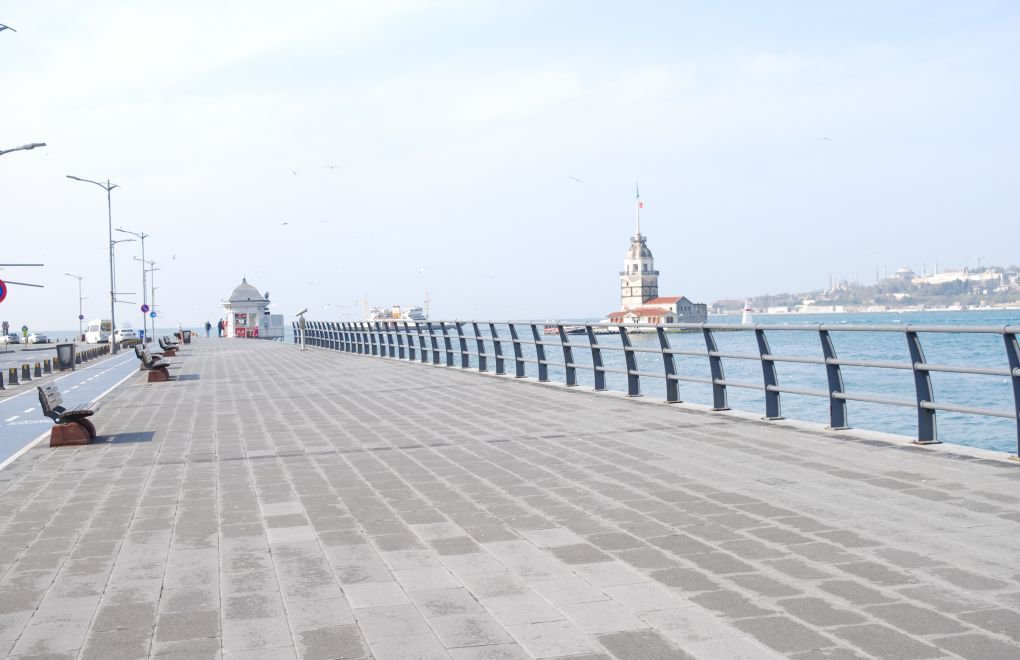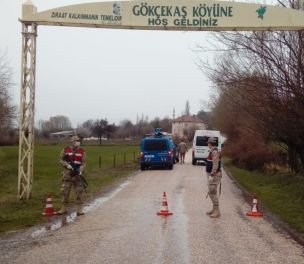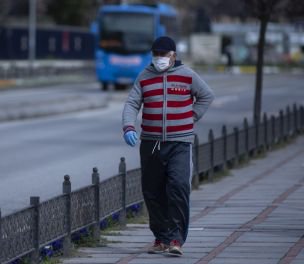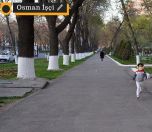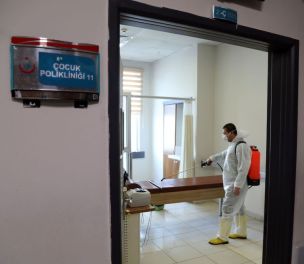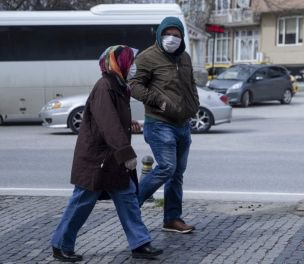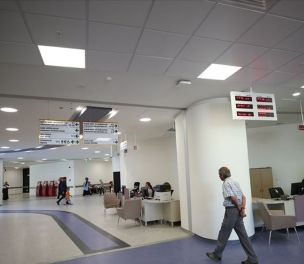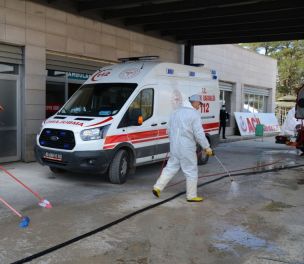An empty coastal walkway in İstanbul's Asian-side district of Üsküdar. (Photo: AA)
Click to read the article in Turkish
As the coronavirus has spread all around Turkey because of the government's mistakes in containing the disease, it has now lost the opportunity to implement a country-wide quarantine, according to the Turkish Medical Association (TTB).
"Cases and contacts are almost everywhere. After this stage, the opportunity to implement a country-wide quarantine was missed. Locally or regionally, quarantine and isolation can still be applied quickly and decisively in the light of epidemiological data," the TTB said in a statement today.
While the government has been unwilling to declare country-wide quarantine, more than 15 villages and neighborhoods have been quarantined in various parts of the country so far.
CLICK - Thirteen Neighborhoods and Villages in Eight Provinces Quarantined over Coronavirus
Despite calls by both the opposition and the Ministry of Health for a partial curfew, President Recep Tayyip Erdoğan on Friday (March 27) advised a "voluntary quarantine."
The TTB said that effective community containment would not be possible while those employed in the private sector have to continue working.
There are currently 9,217 confirmed Covid-19 patients in the country and 131 people have lost their lives from the new coronavirus, according to the Ministry of Health.
What mistakes were made?
In its statement, the TTB listed what it called mistakes by the government to curb the spread of the virus:
- Although it was learned that the outbreak was in Iran, the border gates were gradually closed and effective quarantine was not applied to those who came from the country.
- Except for body temperature screening, almost no restrictive practices were applied to more than 300 thousand people who came from European countries known to have the disease.
- When the relations with the European Union became tense, immigrants, asylum-seekers and refugees living in various cities of the country were sent to provinces bordering Greece by buses. About a week later, they were brought to their former places by buses again.
- Although it was known that there was an outbreak in Saudi Arabia, most of the 20 thousand people who came back from Umrah (Islamic pilgrimage) were not quarantined.
- While schools and universities were closed, military recruitments and discharges and mass prayers were not suspended at the same time.
- Most of the people with symptoms of the disease, who contacted them and health workers who contacted possible Covid-19 patients were not systematically tested.
What can be done from now on?
- For a period determined in the light of epidemiological data, the restriction of people's mobility should be extended and continued. It must be ensured that everyone having indications should be tested and patients who do not need hospital treatment should be isolated.
- The number of cases and health service capacity should be evaluated on a provincial basis, and measures to protect working conditions and ensure physical distance should be taken on a provincial basis when necessary.
- Support should be provided urgently to prevent negative effects on the lives and health of workers, unemployed and poor people. Turkey's resources are sufficient for this support. (AS/VK)




